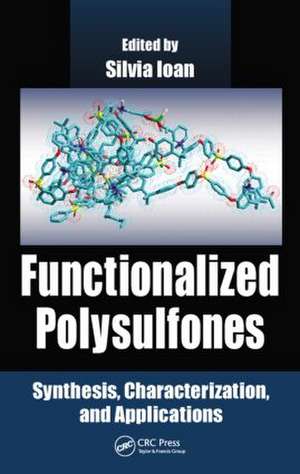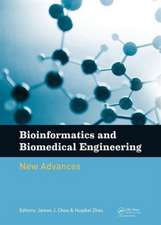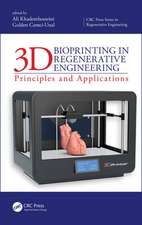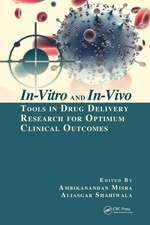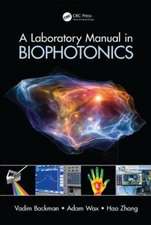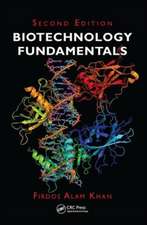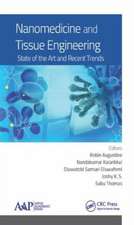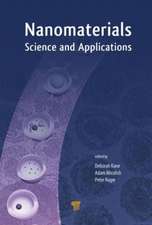Functionalized Polysulfones: Synthesis, Characterization, and Applications
Editat de Silvia Ioanen Limba Engleză Hardback – 24 apr 2015
In this book, the bioapplications of polysulfones are presented in two categories: blood-contacting devices (e.g., membranes for hemodialysis, hemodiafiltration, and hemofiltration) and cell- or tissue-contacting devices (e.g., bioreactors made by hollow-fiber membrane and nerve generation through polysulfone semipermeable hollow membrane). Surface wettability and hydrophilicity trends, as well as the morphological characteristics of modified polysulfones, are analyzed for semipermeable membrane purposes. Select chapters provide an introduction to chelating units on the modified polysulfone structure to obtain potential applications, such as surface coatings on metals and glasses, adhesives, high-temperature lubricants, electrical insulators, semiconductors, and the reduction of heavy-metal pollution in ecosystems.
Featuring recent scientific information, Functionalized Polysulfones: Synthesis, Characterization, and Applications advances the basic knowledge of students and researchers working in the field of polymeric materials, including physicists, chemists, engineers, bioengineers, and biologists.
| Toate formatele și edițiile | Preț | Express |
|---|---|---|
| Paperback (1) | 555.39 lei 6-8 săpt. | |
| CRC Press – 23 oct 2017 | 555.39 lei 6-8 săpt. | |
| Hardback (1) | 1354.04 lei 6-8 săpt. | |
| CRC Press – 24 apr 2015 | 1354.04 lei 6-8 săpt. |
Preț: 1354.04 lei
Preț vechi: 1897.21 lei
-29% Nou
Puncte Express: 2031
Preț estimativ în valută:
259.13€ • 269.53$ • 213.93£
259.13€ • 269.53$ • 213.93£
Carte tipărită la comandă
Livrare economică 14-28 aprilie
Preluare comenzi: 021 569.72.76
Specificații
ISBN-13: 9781482255546
ISBN-10: 1482255545
Pagini: 328
Ilustrații: 106 black & white illustrations, 29 colour illustrations, 33 black & white tables
Dimensiuni: 156 x 234 x 20 mm
Greutate: 0.75 kg
Ediția:1
Editura: CRC Press
Colecția CRC Press
ISBN-10: 1482255545
Pagini: 328
Ilustrații: 106 black & white illustrations, 29 colour illustrations, 33 black & white tables
Dimensiuni: 156 x 234 x 20 mm
Greutate: 0.75 kg
Ediția:1
Editura: CRC Press
Colecția CRC Press
Cuprins
General Introduction. Aromatic Linear Polysulfones with Pendant Functional Groups. Mathematical Models and Numeric Simulations of Specific Interactions in Solutions of Modified Polysulfones. Structure-Property Relationships of Functionalized Polysulfones. Phosphorus-Containing Polysulfones for High-Performance Applications in Advanced Technologies. Origin of Dielectric Response and Conductivity of Some Functionalized Polysulfones. Functionalized Polysulfone-Metal Complexes. Biocompatibility of Polysulfone Compounds. Antimicrobial Activity of Polysulfone Structures. Potential Biomedical Applications of Functionalized Polysulfones.
Notă biografică
Silvia Ioan is a senior scientific researcher in the Department of Chemical Physics at the "Petru Poni" Institute of Macromolecular Chemistry, Romanian Academy, Iasi. She obtained her Ph.D in physical sciences from the University of Bucharest, Romania. Her scientific contributions include interdisciplinary research for theoretical and experimental substantiations of the processes and technologies at nano-, micro-, and macroscales. In 48 years of work, Dr. Ioan has published more than 300 scientific papers, books, and book chapters. She is the Ph.D supervisor in chemistry at the doctoral school of the Institute of Macromolecular Chemistry—Romanian Academy, an expert reviewer of prestigious scientific journals, and a recipient of the Nicolae Teclu prize from the Romanian Academy of Science.
Descriere
This book focuses on polysulfones and their derivatives, which are used as functional materials due to their structural and physical characteristics. The text presents the bioapplications of polysulfones in two categories: blood-contacting devices and cell- or tissue-contacting devices. It analyzes surface wettability and hydrophilicity trends, as well as morphological characteristics of modified polysulfones. It also introduces chelating units on the modified polysulfone structure to obtain potential applications, such as surface coatings, adhesives, high-temperature lubricants, electrical insulators, semiconductors, and the reduction of heavy-metal pollution in ecosystems.
